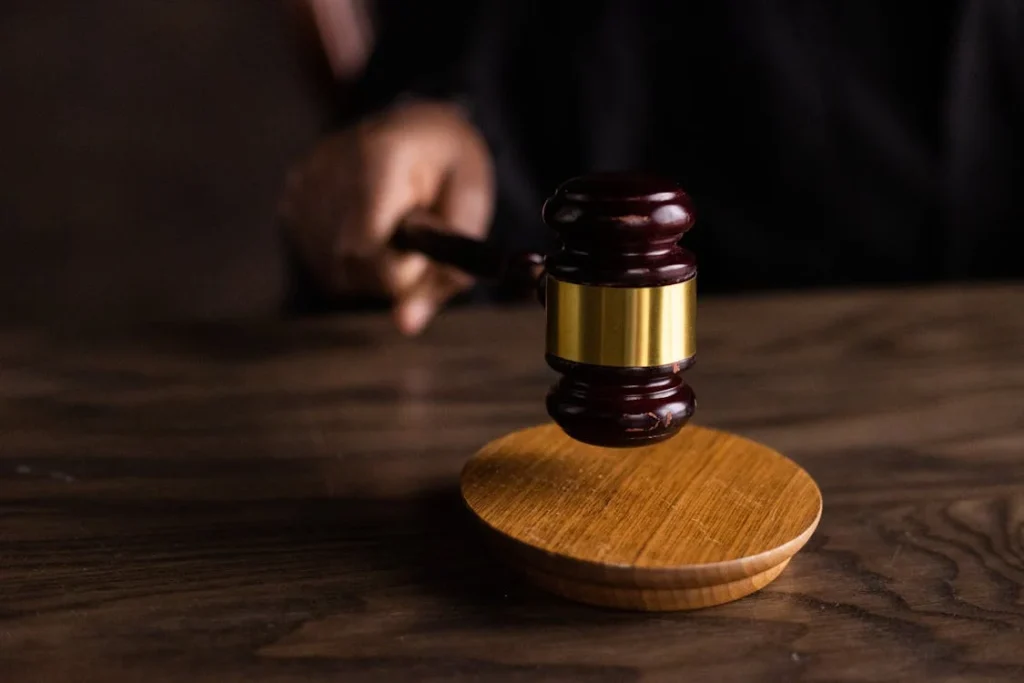Disability rights in India have not come easily. Every step toward inclusion and equality has been the result of long struggles, legal battles, and the courage of individuals who refused to be ignored. While laws like the Rights of Persons with Disabilities (RPWD) Act, 2016 and constitutional protections guarantee rights to people with disabilities, real change has come through the courts.
Over the years, landmark judgments by the Supreme Court and High Courts have forced governments, institutions, and society to recognize the rights of people with disabilities. These cases have challenged discrimination, demanded accessibility, and reinforced the fundamental principle that disability should never be a reason for exclusion.
Understanding these legal battles is crucial because they set the foundation for how disability rights are enforced today. They have shaped policies on employment, education, accessibility, healthcare, and social inclusion.
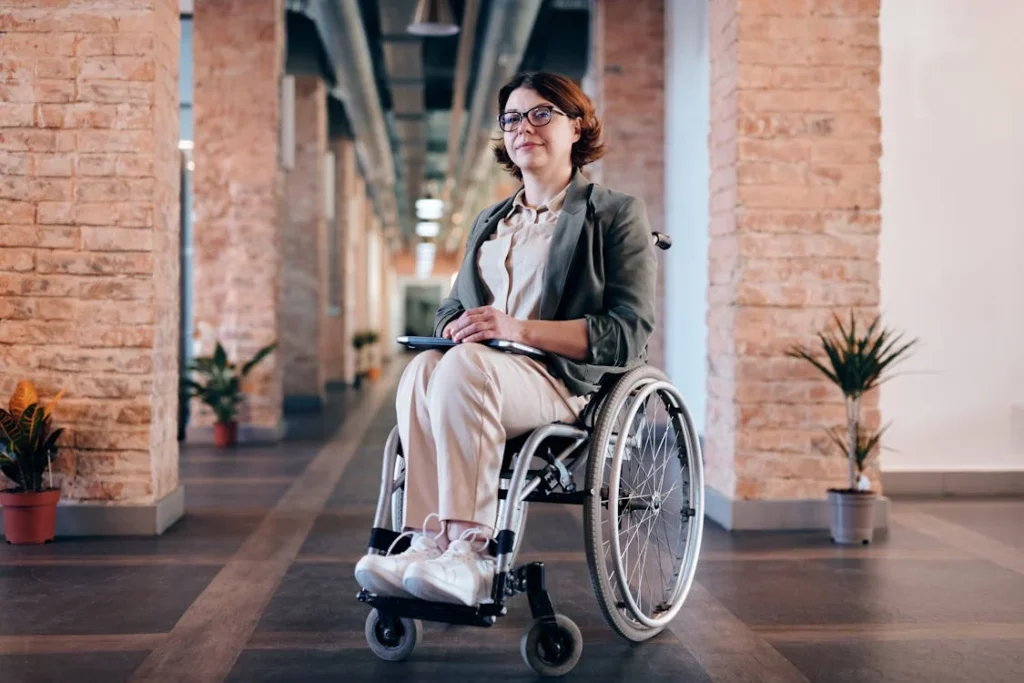
The Fight for Equal Employment Rights
Employment has been one of the most contested areas in the fight for disability rights in India. While laws exist to ensure equal opportunities, many organizations—both public and private—have been reluctant to comply.
Several landmark cases have reinforced the idea that people with disabilities have the same right to work as anyone else and that denying them opportunities is a violation of fundamental rights.
The Case of Jeeja Ghosh vs. Union of India (2016)
Jeeja Ghosh, an accomplished disability rights activist, was forcibly removed from a flight in 2012 simply because she had cerebral palsy.
Despite being a regular traveler, she was treated unfairly due to ignorance and discrimination. The incident led to a legal battle that reached the Supreme Court, where she argued that her fundamental rights had been violated.
In its ruling, the court emphasized the dignity and independence of people with disabilities. It held that airlines and other service providers must ensure accessibility and treat people with disabilities with respect.
This case was a turning point, reinforcing the need for sensitivity training and stronger legal enforcement in all sectors, including employment.
The Government Employee Quota Case
Another crucial case that shaped employment rights was the Union of India vs. National Federation of the Blind (2013).
This case was about the government’s failure to implement the three percent reservation for people with disabilities in public sector jobs, as mandated by the Persons with Disabilities (PWD) Act, 1995.
Despite the legal provision, many government departments either ignored or miscalculated the quota, depriving thousands of qualified candidates of employment opportunities.
The Supreme Court ruled that the reservation must be strictly implemented and applied to all stages of recruitment, including promotions.
This judgment had a major impact, as it forced the government to ensure compliance across all departments. Many people with disabilities who had been unfairly denied jobs were able to claim their rightful place in public service.
The Right to Reasonable Accommodation
In Vikash Kumar vs. Union Public Service Commission (2021), the Supreme Court addressed the issue of reasonable accommodation for candidates with disabilities in competitive exams.
Vikash Kumar, a civil services aspirant with a disability, had requested a scribe for his exam. His request was denied because his disability did not fall under the specific categories listed by the UPSC guidelines.
The court ruled that disability rights should not be restricted by rigid definitions and that individuals with genuine difficulties must be given reasonable accommodations.
This judgment reinforced the importance of flexibility in implementing disability laws, ensuring that legal protections actually serve the needs of individuals rather than creating additional barriers.
These cases have had a lasting impact on how disability rights are enforced in workplaces and government institutions. They have not only strengthened legal protections but also changed attitudes toward employing people with disabilities.
However, challenges remain, and continued legal advocacy is necessary to ensure that these rights are fully realized.
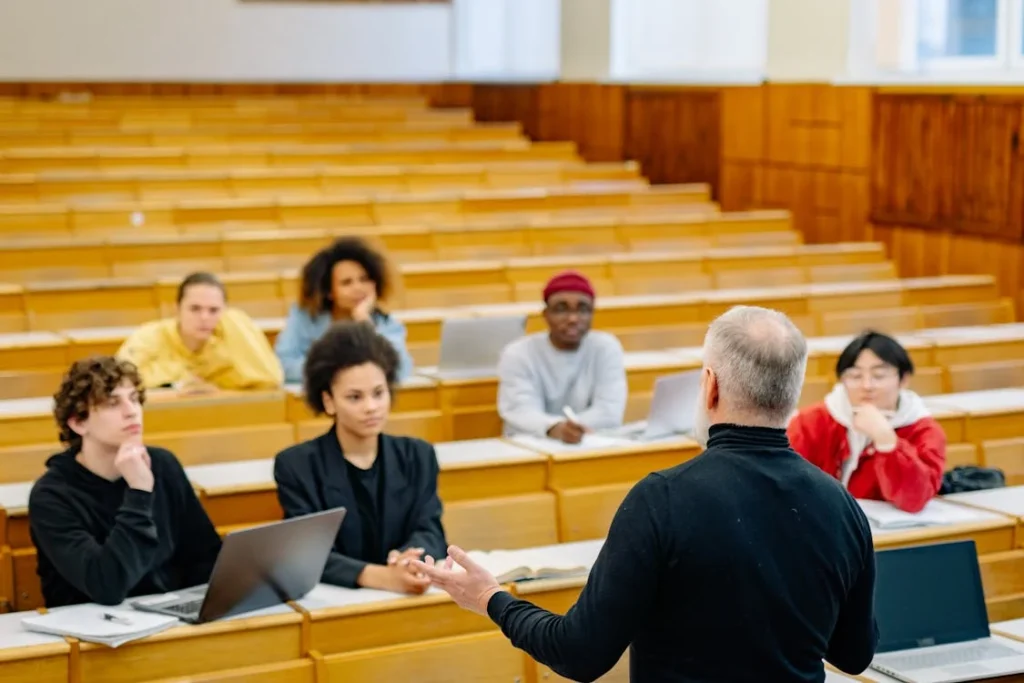
The Battle for Inclusive Education
Education is one of the most powerful tools for empowerment, yet for many people with disabilities in India, access to quality education has been an uphill battle.
Despite legal provisions, schools and universities have often failed to provide necessary accommodations, leading to discrimination and exclusion.
Several landmark legal cases have reinforced the right to education for students with disabilities and have compelled educational institutions to become more inclusive.
The Case of Disabled Rights Group vs. Union of India (2017)
The Rights of Persons with Disabilities (RPWD) Act, 2016 expanded protections for students with disabilities, but implementation remained a challenge.
In 2017, a group of disability rights activists approached the Supreme Court, arguing that many educational institutions were failing to comply with the law.
They pointed out the lack of accessible classrooms, trained teachers, and learning materials adapted for students with disabilities.
The court ruled that the government must take immediate action to make schools and universities accessible. It directed the Ministry of Education to ensure that all institutions provided inclusive learning environments, including proper infrastructure and support systems.
This case reinforced the principle that education must be accessible to all, not just in theory but in practice.
The Case of the Indian Institute of Technology (IIT) vs. A Disabled Student
One of the most significant cases concerning higher education involved a student who was denied admission to an Indian Institute of Technology (IIT) due to his disability.
Despite qualifying through the rigorous entrance exam, the institute claimed that his disability made him ineligible for the course. The student challenged this decision in court, arguing that it violated both the Constitution of India and the RPWD Act.
The High Court ruled in favor of the student, stating that educational institutions could not arbitrarily deny admission based on disability.
The court emphasized that reasonable accommodations must be provided to ensure that students with disabilities have equal opportunities to pursue higher education.
This judgment set an important precedent for universities across India, compelling them to rethink their admission policies and ensure fairness.
Ensuring Accessibility in Competitive Exams
Another key case was Sambhavana vs. Union Public Service Commission (2018), which dealt with accessibility in competitive exams.
Many national-level entrance and recruitment exams, including those conducted by UPSC and SSC, failed to provide necessary accommodations for candidates with disabilities.
This included the lack of scribes for visually impaired students, inaccessible exam centers, and rigid rules that made it difficult for students with disabilities to compete fairly.
The court ruled that all competitive exams must provide reasonable accommodations, such as extra time, scribes, and accessible test centers. It directed examination boards to ensure that their policies did not create unnecessary barriers for candidates with disabilities.
This case was crucial in making national exams more inclusive and ensuring that people with disabilities had an equal chance to compete for government jobs and higher education opportunities.
These legal battles have transformed education for students with disabilities in India. They have reinforced the idea that inclusive education is not just an option but a fundamental right.
However, many schools and universities still lag behind in providing accessible infrastructure and learning materials, making continued vigilance and advocacy essential.

The Fight for Accessibility in Public Spaces
Access to public spaces is a fundamental right, yet many places in India remain inaccessible to people with disabilities.
From government buildings to transportation systems, the lack of ramps, lifts, tactile pathways, and accessible restrooms makes it difficult for people with disabilities to navigate daily life.
Several landmark legal cases have pushed for greater accessibility, forcing authorities to make much-needed changes.
The Supreme Court’s Ruling on Accessible Public Spaces
In Amita vs. Union of India (2018), the Supreme Court was presented with a case highlighting the inaccessibility of public spaces across the country.
The petitioner, a wheelchair user, argued that despite multiple laws mandating accessibility, most public buildings and transportation systems remained non-compliant.
She described the challenges faced in government offices, railway stations, and even hospitals, where the absence of ramps, elevators, and accessible toilets created significant obstacles.
The court ruled that all government buildings must comply with accessibility guidelines outlined in the RPWD Act, 2016 and the Harmonized Guidelines for Barrier-Free Built Environment.
It ordered state governments to conduct accessibility audits and ensure modifications were made. This case marked a turning point in holding government institutions accountable for failing to meet accessibility standards.
The Railways Accessibility Case
Transportation has been a long-standing issue for people with disabilities in India. Railway stations and train coaches have traditionally been inaccessible, making travel extremely difficult.
In National Platform for the Rights of the Disabled vs. Indian Railways (2017), disability rights groups approached the court to demand better facilities.
They argued that railway stations lacked ramps and lifts, train coaches were not designed for wheelchair users, and visually impaired passengers did not have proper assistance.
The court ruled in favor of the petitioners and directed Indian Railways to improve accessibility across its network. It ordered that new railway stations be built with ramps, tactile paving, and proper signage, and that older stations be modified accordingly.
The court also emphasized the need for dedicated compartments and seating arrangements for people with disabilities in train coaches.
The Delhi High Court’s Judgment on Metro Accessibility
In Rajeev Ranjan vs. Delhi Metro Rail Corporation (2019), a visually impaired man sued the Delhi Metro after he was denied assistance while traveling.
He argued that metro stations did not provide clear audio announcements, tactile flooring for navigation, or sufficient help for visually impaired passengers.
The Delhi High Court ruled that all metro systems must comply with accessibility standards and provide necessary accommodations for passengers with disabilities.
It ordered the Delhi Metro Rail Corporation (DMRC) to introduce better signage, improve staff training, and ensure proper audio and visual assistance. This ruling set a precedent for other metro projects across India, ensuring that rapid transit systems became more inclusive.
These cases have had a major impact on public infrastructure in India, forcing authorities to make accessibility a priority. While progress has been made, many public spaces still do not fully comply with accessibility laws, making continued legal action and advocacy necessary.
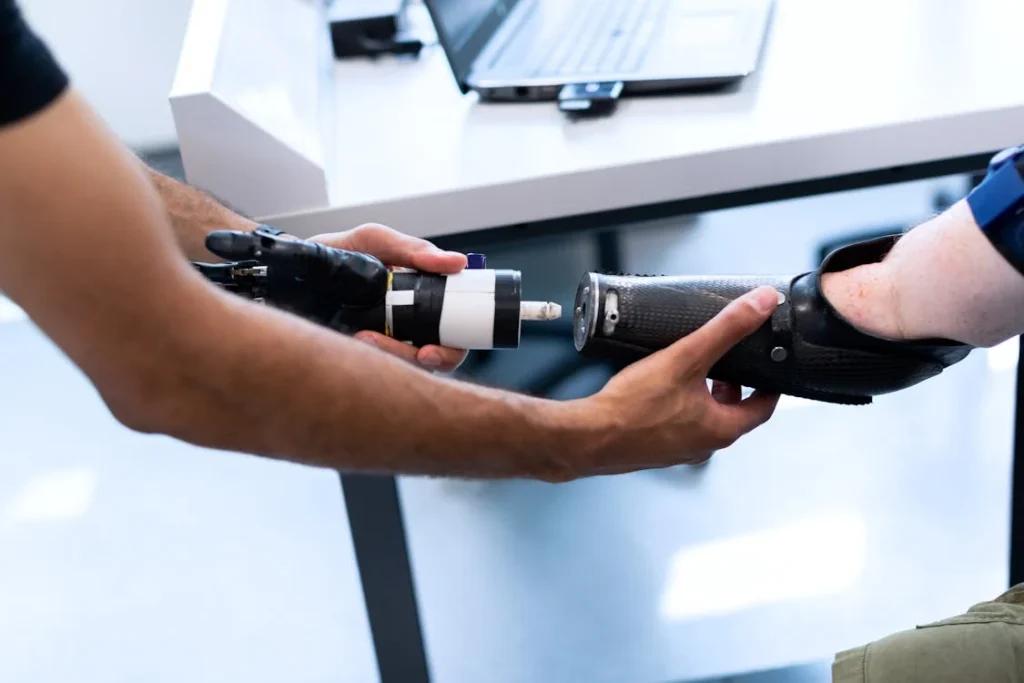
Strengthening Disability Rights Through Social Welfare and Healthcare Cases
Disability rights are not only about employment, education, and accessibility—they also include access to healthcare and social welfare.
Many people with disabilities in India face difficulties in receiving proper medical care, social security benefits, and financial assistance due to systemic barriers.
Several landmark legal cases have ensured that people with disabilities are treated with dignity in hospitals, receive necessary government benefits, and are not excluded from welfare programs.
The Right to Healthcare for People with Disabilities
In Reena Banerjee vs. Government of India (2015), the Supreme Court addressed the failure of hospitals and medical institutions to provide proper care for people with disabilities.
The case involved a woman with a severe disability who was denied treatment in a government hospital because the facility lacked necessary accommodations. Her family struggled to find a medical center that would accept her, highlighting a major gap in India’s healthcare system.
The Supreme Court ruled that hospitals—both public and private—must ensure accessibility and proper medical care for people with disabilities.
It directed the Ministry of Health to introduce disability-friendly policies, including training for medical staff on how to assist patients with disabilities. This case forced hospitals to recognize that denying medical treatment due to inaccessibility is a form of discrimination.
Ensuring Disability Pensions and Social Security
Many people with disabilities in India rely on government welfare schemes for financial assistance. However, delays, bureaucratic hurdles, and lack of awareness often prevent them from receiving their rightful benefits.
In Disabled Persons Welfare Association vs. State of Maharashtra (2019), a group of disability rights activists filed a petition against the state government for failing to distribute disability pensions on time.
The Bombay High Court ruled that disability pensions must be disbursed without unnecessary delays and that state governments must simplify the process for obtaining social security benefits.
The court emphasized that government officials must be held accountable if people with disabilities do not receive their rightful financial assistance. This case led to improvements in several states, making it easier for disabled individuals to access welfare schemes.
Access to Mental Healthcare and Legal Recognition
In Shafin Jahan vs. State of Kerala (2018), the Supreme Court addressed the rights of people with psychosocial disabilities. The case involved a young woman who was placed in a mental health institution against her will due to her family’s objections to her marriage.
This raised serious concerns about how people with mental health conditions were treated under the law.
The Supreme Court ruled that people with psychosocial disabilities have the right to make decisions about their own lives and that forced institutionalization without proper legal review is a violation of human rights.
The ruling reinforced the provisions of the Mental Healthcare Act, 2017, which guarantees that people with mental health conditions cannot be discriminated against and have the right to live in the community instead of being confined in institutions.
These cases have significantly strengthened social welfare and healthcare protections for people with disabilities. They have ensured that hospitals, welfare offices, and government institutions do not neglect the needs of disabled individuals and that legal protections are not just symbolic but actively enforced.
However, many challenges remain, and continued legal battles will be necessary to ensure that healthcare and welfare rights for people with disabilities continue to improve.
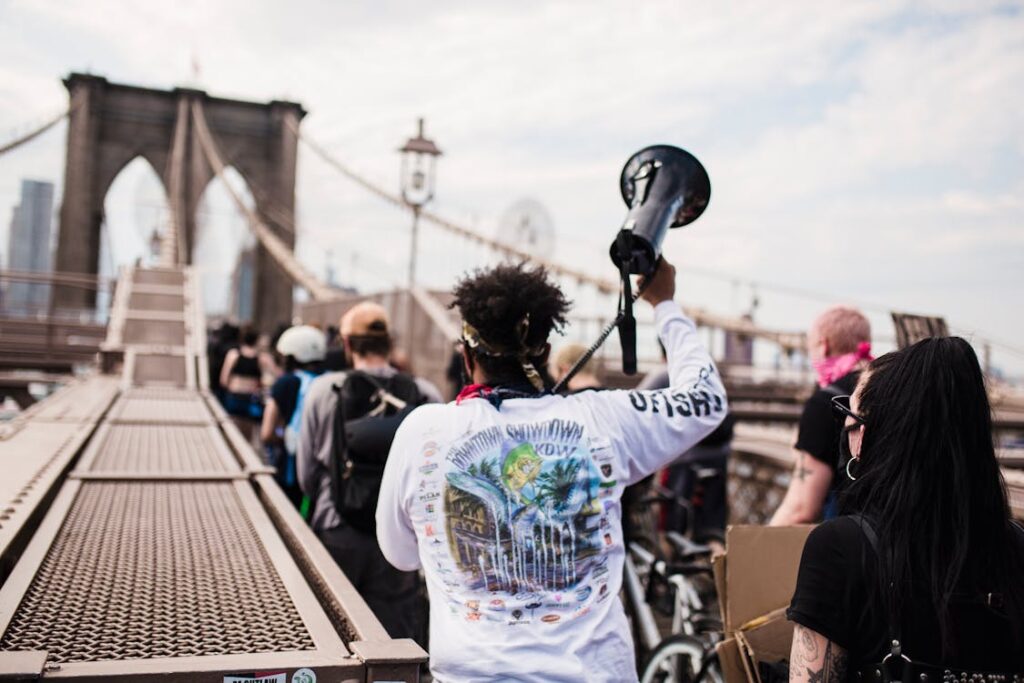
Fighting for Political Representation and Legal Recognition
The rights of people with disabilities extend beyond healthcare, education, and employment. Full inclusion in society means having a voice in politics, the ability to participate in elections, and legal recognition as equal citizens.
Despite laws protecting these rights, barriers such as inaccessible polling stations, lack of political representation, and outdated legal definitions have historically excluded people with disabilities from fully participating in democracy.
Several landmark legal cases have challenged these injustices, leading to meaningful reforms.
The Right to Vote and Accessible Elections
In Vikas Kumar vs. Election Commission of India (2018), a disability rights activist approached the Supreme Court after finding that polling stations across the country were not accessible to voters with disabilities.
He argued that while the Election Commission of India (ECI) had issued guidelines for accessible voting, these were not implemented in many states.
Wheelchair users struggled to enter polling booths, visually impaired voters were not provided with braille ballots, and election staff were often unaware of how to assist disabled voters.
The Supreme Court ruled that elections must be fully accessible and that the ECI must ensure every polling station provides necessary accommodations.
It directed state governments to install ramps, provide braille-enabled electronic voting machines (EVMs), and ensure that election officials were trained to assist voters with disabilities.
The ruling strengthened the RPWD Act, 2016, which guarantees political participation for disabled individuals.
Disability and Political Candidacy
While the right to vote is essential, having leaders with disabilities in political office is equally important.
In Vijayalakshmi vs. State of Tamil Nadu (2020), a woman with a disability was prevented from contesting local elections due to an outdated state law that disqualified candidates with certain disabilities from holding office.
She challenged this law in the Madras High Court, arguing that it was discriminatory and violated her constitutional rights.
The court ruled in her favor, stating that no person can be denied the right to run for office based on disability. It emphasized that reasonable accommodations must be made for disabled candidates, ensuring that they can fully participate in the electoral process.
This case set a precedent for other states, reinforcing the idea that disability is not a barrier to leadership.
Legal Recognition of Persons with Disabilities
One of the most significant cases concerning legal recognition was Vaishnavi Jayakumar vs. Union of India (2021), which addressed the issue of disability certification.
Many people with disabilities struggle to obtain disability certificates, which are required to access government benefits, jobs, and reservations. The process is often complicated, requiring multiple hospital visits, medical examinations, and bureaucratic approvals.
Vaishnavi Jayakumar, a disability rights activist, filed a petition arguing that the system for issuing disability certificates was inefficient and discriminatory.
The Supreme Court ruled that the government must simplify the process, allow online applications, and ensure that all recognized disabilities under the RPWD Act, 2016 are included in certification policies.
The ruling led to improvements in how disability documentation is issued, reducing delays and making it easier for people to access their rights.
These cases have played a crucial role in strengthening political participation and legal recognition for people with disabilities.
They have ensured that elections are more inclusive, that candidates with disabilities are not unfairly disqualified, and that legal documentation is more accessible.
However, advocacy must continue to ensure that these rights are fully implemented at all levels of government.
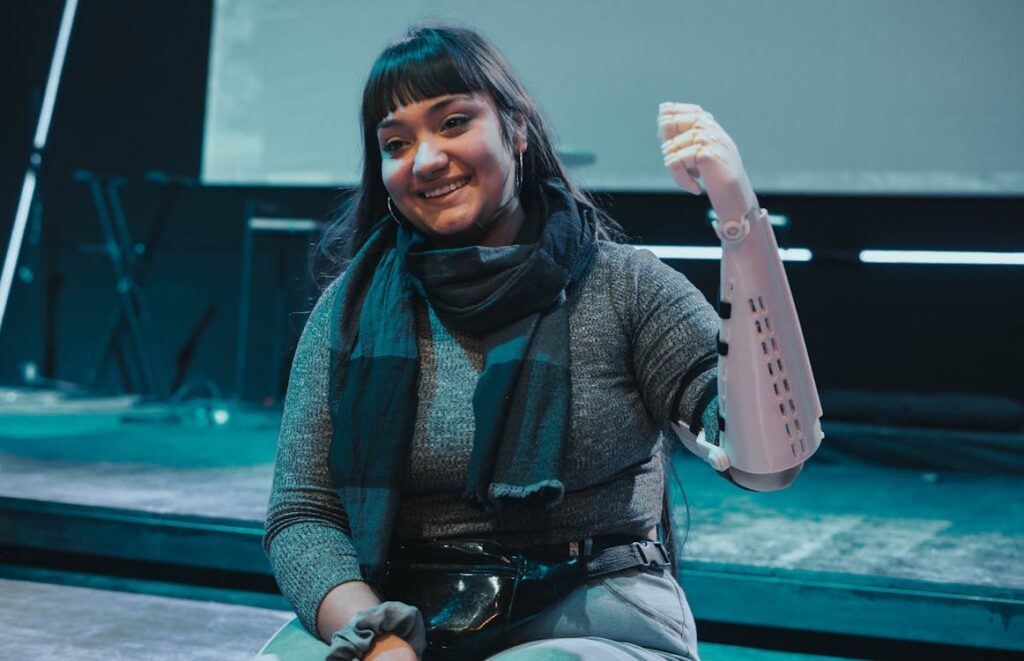
The Road Ahead: Strengthening Disability Rights in India
The landmark legal cases discussed in this article have shaped disability rights in India, but the fight for full inclusion is far from over.
While the courts have consistently ruled in favor of accessibility, equal opportunities, and non-discrimination, the real challenge lies in enforcing these judgments.
Many public spaces remain inaccessible, employment discrimination persists, and social attitudes toward disability still need significant improvement. The legal victories won so far must translate into real change on the ground.
Challenges in Implementing Disability Laws
One of the biggest obstacles is the lack of proper implementation of disability laws and court rulings. Despite the Rights of Persons with Disabilities (RPWD) Act, 2016, many government offices, schools, and public spaces still fail to meet accessibility standards.
State governments and local authorities often cite budget constraints or logistical difficulties as reasons for slow implementation. Without strict monitoring and penalties for non-compliance, accessibility laws remain ineffective.
Another major challenge is lack of awareness. Many people with disabilities are still unaware of their rights, making it difficult for them to challenge discrimination.
Government agencies, employers, and even courts sometimes lack proper understanding of disability laws, leading to delays in justice.
Strengthening awareness campaigns, legal aid services, and disability rights training programs is essential to ensuring that people with disabilities can assert their rights.
The Role of Advocacy and Grassroots Movements
Legal battles have played a critical role in shaping disability rights, but long-term change comes from continuous advocacy. Disability rights groups, NGOs, and activists have been instrumental in filing petitions, pushing for policy changes, and ensuring that laws are enforced.
Their work has led to improvements in public transportation, workplace accommodations, and access to education. However, more people need to join this movement to make disability rights a mainstream issue.
Community-driven initiatives can also make a significant impact. Residents’ welfare associations can work toward making apartment complexes more accessible, businesses can adopt inclusive hiring policies, and educational institutions can create better learning environments for students with disabilities.
When individuals and organizations take action at the local level, they help drive larger systemic change.
The Future of Disability Rights in India
The legal victories achieved so far have laid the foundation for a more inclusive society, but the future of disability rights in India depends on sustained efforts in multiple areas.
Stronger enforcement of accessibility laws, better disability-inclusive policies in workplaces, and greater representation of people with disabilities in leadership roles will shape the next phase of this movement.
Technology and innovation will also play a crucial role in advancing disability rights. Assistive technologies, smart home solutions, and AI-powered accessibility tools can bridge many of the gaps that still exist.
Governments and private organizations must invest in these solutions to create a more inclusive environment.
Disability rights are human rights, and the progress made so far is a testament to the resilience and determination of people with disabilities and their allies.
By continuing to challenge injustices, demand accountability, and push for stronger policies, India can move closer to becoming a truly inclusive nation where disability is not seen as a limitation but as a part of human diversity.
Conclusion
The legal battles fought in India’s courts have been instrumental in shaping disability rights, ensuring greater access to education, employment, public spaces, healthcare, and political participation. These landmark cases have reinforced that people with disabilities are entitled to equal treatment and dignity under the law. However, legal victories alone are not enough—true change comes from enforcing these rulings and making accessibility a standard in every aspect of society.
Despite the progress made, challenges remain. Many laws are not fully implemented, and social barriers continue to exclude people with disabilities from opportunities. Advocacy, awareness, and grassroots efforts are essential to ensuring that disability rights are not just legal mandates but everyday realities.
Looking ahead, stronger policies, stricter enforcement, and the integration of technology in accessibility solutions will shape the future of disability rights in India. By continuing to challenge discrimination and push for inclusion, India can move closer to a society where disability is not seen as a limitation but as a part of human diversity.
If you or someone you know is looking for assistive technology solutions, Robobionics is here to help. Contact us today to explore innovative prosthetic solutions that empower independence!



